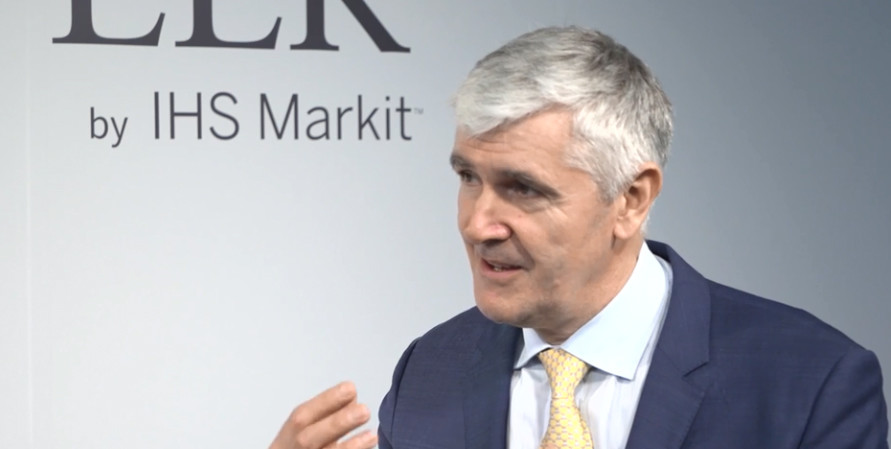
CERAWeek reflection: Collaboration remains key while refocusing on talent and expertise must be priority
As an industry, we are coming out of an unusually long downturn. And downturn represent opportunity, as we all know. Optimization has been a popular theme over the last few years in the oil and gas industry conferences; it was also a key topic at our BHGE Annual Meeting this year and at this year’s CERAWeek 2018, which concludes tomorrow. Discussions about current market conditions and how to tackle inefficiencies and increase collaboration to take out cost were common this year. The recent cycle has almost forced us to think differently and talk has been more optimistic as we have started to see some signs of improvement in the market.
However, there is one topic that needs to be top of mind right now: How do we protect our domain expertise? Domain expertise goes hand-in-hand with breakthrough technology, flawless execution and, most importantly, safe operations. As we begin to recover, one of the concerns that we haven’t really started talking about intensely enough, but bears some consideration, is how to bring people with the right levels of expertise back into the industry. Conservative estimates suggest that, unfortunately, hundreds of thousands of people were removed from the industry and the supply base associated with it during the downturn. As an industry, that is a huge amount of expertise and experience that we’ve lost. And some of it is a permanent loss. People who understand oil and gas, and who understand process risk are gone. Many of these people have retired or taken their talents to different industries and won’t return.
One of the things that I think about as we contemplate bringing people back is certainly the need to preserve the expertise of the veterans. At the same time, I want to remember this is also an opportunity to change the culture and to foster new skills needed to drive the industry into the future. These changes are things we learned during the cycle.
When forced by market conditions to look for efficiencies, we adopted a new mindset focused on collaborative partnerships with customers and EPCs. Working together across the project life-cycle, we found areas of inefficiency and of duplication that were driving cost, project risk, and schedule risk. Early alignment towards shared goals earns more long-term benefit.
This new collaborative approach has already delivered some great success. But it starts within our own supply chain by introducing design thinking in the whole process of how our products get born. For our business, this means that we are all connected in terms of final result, from Engineering, Sourcing and Manufacturing to FSEs, HSE, Quality and Commercial.
I hope to see how the new and returning talent continues to challenge the culture and improves the way we approach projects. Collaboration is one way. Technology will certainly be a part, as we’ve seen this week, additive manufacturing, artificial intelligence and other technologies will offer means to improve processes over time. What other ways do you think will the industry drive improvement as the signs of recovery begins to flicker?
Senior Digital Project Manager at Caterpillar
4yNice one & it is vital in current market condition
Re-imagining Biotech & biomedical solutions for the betterment of society | Innovator | Founder | Thinker
5ySpot on. Collaborative partnerships is the wayforward. I believe in developing strong partners and continuous skill development. This ensures engagement and long term sustainability.
Rod – I agree with Andrew Jones, it’s not too late to recover some of the lost talent. Baker-Hughes is heading in the right direction in considering how to best utilize domain experts, before hiring them back. Your suggestion of using EPCs goes in the right direction as well, but a small modification may pay bigger benefits. You might consider using smaller consulting firms who have already enlisted some of the talent that GE has recently shed. It gives B-H the best of both worlds: much lower annual costs and great experienced talent when and where that talent is needed. These engineers still love doing the great work they’ve done for years, and you can make full use of this talent with the all safe-guards in place to protect GE’s IP. Many of us who no longer work for GE have been anxiously watching the news for signs that the organization is stabilizing and heading in a new direction. Your words are comforting.
General Manager Vice President at 3D Engineering
6yRod..... always appreciate your candid remarks and honesty about the industry as a whole.. I hope that you are able to pull some of hose great people back into the industry, with new skills as well. We all know its been a tough few years in the industry and how companies go through the downturns (not profit but reputation, empathy, and vision), will be one prediction of the domain they retain and who returns...
Aftermarket & Sustainment Engineering Military Programs Director
6yGreat article, Rod. The downturn definitely has impacted talent in the industry. I am amazed to hear your level of estimates on lost talent. But, it is not too late to recover some of the lost talent. We just have to move quickly before the competition or other industries grab them.